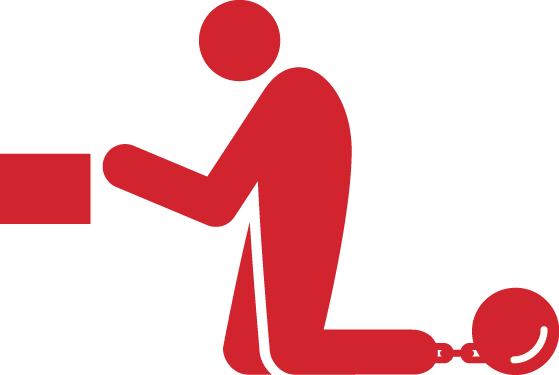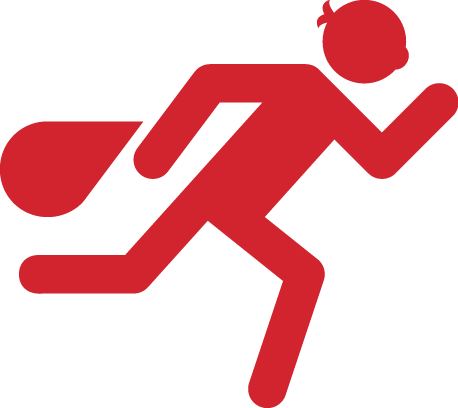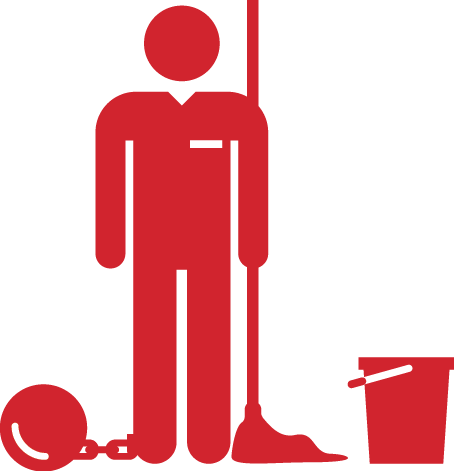1
-


Imprisonment - The person cannot or feels that he/she cannot leave the work environmen
- The person seems to be under surveillance
- The person has little to no social life or outside contacts
-
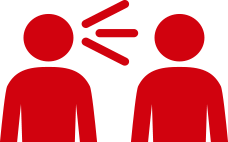
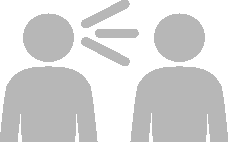
Constraint - The person thinks he/she is obligated to work (out of fear, debt, etc.)
- The person allows someone else to speak on his/her behalf
- The person acts as if he/she has received orders
- The person is punished if he/she doesn’t perform a job well
- The person is dependent on someone else
-


Fear - The person shows fear or anxiety around other people at work
- The person is wary of authorities out of fear of being caught (fear of retaliation or being expelled)
-
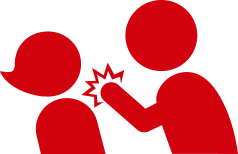
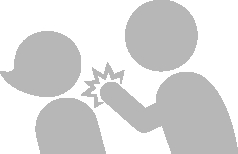
Violence - The person is subject to violence or threats against themselves or those they love
- The person shows signs of abuse
- The person is subject to insults or bad treatment
- The person’s living or working conditions are unsuitable (workplace, hours, etc.)
-


Unstable situation - The person does not have identity papers
- The person does not speak any of the languages spoken in Luxembourg
- The person does not know the address of his/her home or workplace
- The person receives little to no salary
- The person does not have access to medical care
2
Infotraite Services d'assistance
T. 27 36 56 46 - 621 316 919 - 621 351 884
horaires d'ouverture des bureaux
E-mail : info@traite.lu

